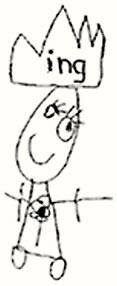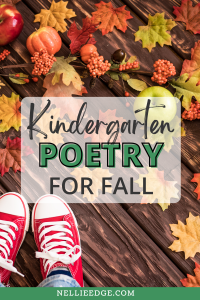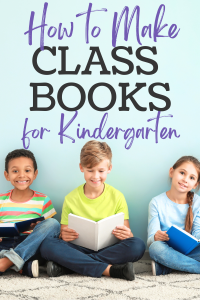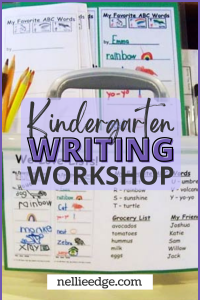My Kindergarten Teaching Philosophy
Examining our beliefs about teaching and learning is at the core of our professionalism

I believe that respectful, caring bonds with children and their families are the vital foundation for a wonderful kindergarten experience. As a teacher of the young, I share with parents the responsibility for teaching their child.
I believe that each child has unique strengths, varied prior language learning experiences, and preferred learning styles. My instruction must be differentiated to provide enough challenge and enough support for all children to build on success and develop positive attitudes about learning.
I believe that emotional engagement is the key to all powerful learning. That is why I bring love, laughter, passion, and meaningful project work into my kindergarten. I always look for ways to personalize learning and engage the child’s imagination.
I believe kindergarten is for language. It is the familiarity with the English and Spanish languages that precedes and underlies excellent literacy instruction. This familiarity allows the child’s decoding to be error-free and reading to be fluent. While actively and systematically “playing with language” I encourage children to become “voracious vocabulary learners,” use their phonics skills, and build comprehension.
I believe that children deserve to memorize, recite, and perform many wonderful pieces of language in kindergarten — to turn print into sound and the pleasures of sound over to an appreciative audience. My curriculum invites children to talk, sing, dramatize, and perform language. Developing the child’s capacity for language and thought underlies everything I do.
I believe that rich experiences in the many languages of art, music, drama, dance, storytelling, and play help children find personal meaning in school learning. I very intentionally use these multiple “ways of knowing” while promoting creative and higher-order thinking.
I believe we must choose only the finest literature, songs, poems, and rhymes to give our children. These language models are the seeds that inspire our children to love using language and grow them into powerful writers and thinkers. I want imaginative language, poetic phrases, and metaphors to become a part of my children’s thinking, speaking and writing. Quality literature supports quality comprehension instruction. The first books children read must inform and delight the heart and mind.
We have proved that writing unlocks the key to higher literacy standards in kindergarten, and young children love to write. I believe that children deserve strategies to begin writing and to perceive themselves as authors and illustrators from the very first day of school. Within the context of writing, we systematically provide phonics instruction that has meaning to children so they can understand how the reading process works.
I believe that joyful multisensory ABC and phonics immersion strategies (singing and signing and fingerspelling) accelerate sound/symbol knowledge. These instructional practices are consistent with how the young child’s brain learns best. They are active and engaging strategies that build motivation and enthusiasm for learning.
I believe that all young children deserve to learn memorable songs in American Sign Language. Children fortunate enough to learn ASL and experience performing lovely songs for appreciative audiences have a lifelong advantage in developing dynamic communication skills.
I believe that we need to support and honor “magical memory reading” and “reading the pictures” as essential literacy experience for young children who may have limited language and print experience. Memory reading and reading the pictures with nursery rhymes and song picture books build oral language fluency and allow children to comprehend text before they are actually reading word-for-word. These opportunities to role-play themselves as successful readers while learning concepts about print must accompany traditional shared and guided reading instruction — especially for children who have not had years of repeated “magical memory reading” experiences at home. This is how we develop language and reading skills simultaneously.
I believe that parents and children need to understand that engaging experiences with real books build real readers. Researchers say that reading books of one’s own choosing every day is the best way to become a better reader. Young children can develop skill in choosing “just-right” books and take pride in building reading stamina.
I believe some children need much more carefully scaffolded instruction than we used to consider appropriate. As a teacher-researcher, I love the challenge of building success for each individual learner. I am constantly learning and open to new insights from educational research and my wise teaching colleagues. My high expectations for children’s literacy development, thinking skills, and love of learning keep me challenged and reflective.
I believe that by awakening children’s love of nature, we create compelling reasons for them to want to read, write, research and to also meet the Next Generation Science Standards. My goal is to develop a sense of wonder and respect for the natural world. As we bring our connections with nature back into the classroom, we create a more engaging and alive learning environment. Children who learn to observe and respect the natural world will make wiser ecological choices now … and in the future.
I believe that the kindergarten experience must nurture social-emotional skills in each child and create joyful school memories. Kindergarten is a magical journey and one of my jobs is to develop the imagination and create memorable rituals, traditions, and celebrations that honor childhood. I value dramatic play, block building, dance and movement, and the many forms of literacy play. I want children to be active learners and disciplined, creative thinkers; to learn to work hard, make good choices, and be kind. I want children to love coming to school each day.
I believe that young children deserve a multisensory and differentiated literacy program within a joyful, caring community of learners — a child’s garden. Their lives must be valued, celebrated, and incorporated into the literacy curriculum so they care about school and develop a love of learning. Authentic, meaningful learning always elicits a SMILE.

Get our weekly blog for more high-impact strategies and free resources!








